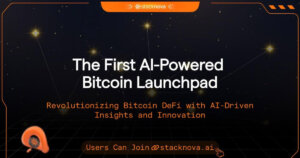 SEC Lawsuit ‘A Year Too Late’ Binance Claims As It Seeks To Dismiss
SEC Lawsuit ‘A Year Too Late’ Binance Claims As It Seeks To Dismiss SEC Lawsuit ‘A Year Too Late’ Binance Claims As It Seeks To Dismiss
Binance fights back, challenging SEC's authority to regulate crypto and the validity of its lawsuit.

Cover art/illustration via CryptoSlate. Image includes combined content which may include AI-generated content.
Binance and its founder, Changpeng Zhao (CZ), have filed a motion seeking to dismiss the lawsuit brought against them by the Securities and Exchange Commission (SEC).
The SEC filed suit in August, claiming Binance sold cryptocurrencies that should have been registered as securities. The tokens named in the case include Binance Coin (BNB), Binance USD (BUSD), and several third-party tokens traded on Binance’s platform.
In the dismissal motion, Binance argues that cryptocurrency tokens are not securities and fall outside the SEC’s regulatory authority.
Binance states that the tokens fail to meet the legal test for an “investment contract” to be considered a security. According to Binance, there is no contract between the token issuers and purchasers and no investment of money into a common enterprise as required by precedent.
The motion also contends the SEC lacks apparent authority from Congress to regulate cryptocurrencies in this manner, arguing this is a “major question” that should be decided by legislators rather than the courts.
Additionally, Binance claims the statute of limitations has expired on the SEC’s claim concerning Binance’s 2017 initial BNB offering. The motion argues the SEC’s attempt to apply securities laws to Binance’s non-U.S. exchange and the BNB offering is impermissibly extraterritorial.
Further, Binance alleges the SEC failed to provide fair notice of its interpretation that cryptocurrencies are securities before bringing the lawsuit.
Finally, the exchange states the court lacks personal jurisdiction over Zhao for the SEC’s control person liability claims against him.
The dismissal motion is part of the ongoing legal battle regarding whether and how federal agencies can regulate cryptocurrencies under existing laws. Binance contends the SEC is overstepping its authority and asks the court to dismiss the lawsuit.



 CoinGlass
CoinGlass 
































































































 BNB
BNB

